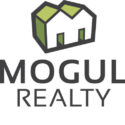Introduction: Exploring the Profit Potential of Becoming a Landlord
Have you ever thought about becoming a landlord? Many people see this as a way to earn extra money. By renting out properties, you can create a steady stream of passive income. But, how much money does a landlord make, really? It varies a lot. Some landlords earn a big chunk each month, while others find the profits aren’t what they expected. This introduction will dive into the real numbers behind landlord profits. We’ll explore what an average profit margin looks like for rental properties and discuss if being a landlord can meet your financial goals. Whether you’re looking to make a little extra or planning for major earnings, understanding these figures is key. Let’s break down the numbers and see if becoming a landlord is right for you.

A landlord, analyzing a graph on a laptop that shows rental income versus expenses over several months.
Understanding Landlord Profitability: Key Concepts Explained
When we talk about being a landlord, the first question often is: “Is it profitable?” To answer this, let’s start with some basics. The average profit margin for a rental property is the difference between the rental income you receive and the expenses you pay out. This can include mortgage payments, maintenance, and taxes. On average, landlords can expect to see some profit, but the amount can vary widely depending on several factors.
For instance, how much money do landlords make? It’s not a simple answer. Some months you might see a good return if your properties are fully rented and expenses are low. However, there could be months where unexpected repairs eat into your profits. Generally, the average monthly profit on a rental property can be a few hundred dollars after all expenses. This number can help you set realistic expectations and plan your finances.
Breaking Down the Numbers
Let’s dive deeper into the numbers. If you’re wondering how much profit should you make on a rental property, consider this: many experts suggest aiming for a profit margin of at least 6% to 8%. This means if your rental income is $1,000 a month, you should ideally keep $60 to $80 after expenses. Achieving this consistently requires careful property selection, efficient management, and sometimes, luck with market conditions.
Knowing these basics helps in making informed decisions about property investments. Remember, being a landlord is not just about collecting rent; it’s about managing assets and ensuring they grow in value over time. In our next section, we’ll look at potential earnings and what current landlords are making annually, giving you a clearer picture of what to expect.

An infographic-style image showing a breakdown of monthly rental income, expenses, and net profit for a typical landlord.
Potential Earnings as a Landlord: What to Expect
Exploring how much a landlord can earn provides exciting insights into the potential of rental properties. When considering how much money landlords make, it’s essential to look at various sources of data to understand the broader picture. On average, landlords can expect to earn a significant yearly income from their properties, which can be quite appealing.
The exact figures can vary based on factors like property location, size, and the market conditions. For instance, the average annual income from a rental property might range from moderate to quite high. Some landlords report making an average monthly profit on a rental property after covering all expenses, which adds up nicely over the year.
Realistic Earnings and Examples
To give you a clearer idea, let’s consider some numbers. The average rental property income can be substantial enough to consider it a primary source of income for some. Landlords typically strive to achieve a good profit margin, which, as we discussed earlier, should ideally be around 6% to 8%. This means if you’re charging $1,500 in rent, you might expect to net around $90 to $120 monthly per unit after expenses, depending on your management efficiency.
Furthermore, it’s crucial to remember that these are average figures. Some landlords might earn more, especially if they own multiple properties or properties in high-demand areas. The potential for higher earnings exists, but it comes with increased responsibility and the need for careful management. In the next section, we’ll delve into the costs and investments associated with being a landlord, helping you understand how to maximize your earnings while managing expenses effectively.

Landlord attentively inspecting a scale model of property, meticulous evaluation for real estate management
Understanding Costs and Investments for Landlords
Being a landlord isn’t just about collecting rent checks. It also involves significant costs and investments that can impact your overall profitability. Let’s look at what you might expect to spend to keep your rental properties in good shape and appealing to tenants.
Firstly, maintenance is a major expense. This includes regular repairs, updates to keep the property modern, and emergency fixes like plumbing issues or heating breakdowns. Additionally, property taxes and insurance are unavoidable costs that can eat into your monthly profits.
Strategizing to Manage Expenses
It’s also important to consider the initial investment. Purchasing a property involves a down payment, closing costs, and sometimes, renovation expenses before it’s ready to rent out. These upfront costs can be high, but they set the stage for earning rental income.
Understanding these expenses helps in planning your budget and forecasting your earnings. A common question is how much profit should you make on a rental property to make the investment worthwhile. As mentioned, aiming for a profit margin of about 6% to 8% after all expenses is a good target. This requires keeping a close eye on both your incoming rent and the outgoing expenses.
By effectively managing these costs, you can maximize your profits and ensure your investment pays off. Next, we’ll explore the factors that influence your profitability as a landlord, helping you make informed decisions about where and how to invest in rental properties.

A side-by-side comparison of two rental properties – one in excellent condition and another in need of repair
Key Factors That Influence Landlord Profitability
To maximize your success as a landlord, it’s crucial to understand the factors that can influence your profitability. These elements can either boost your income or present challenges that reduce your earnings.
One major factor is the location of your property. Properties in high-demand areas tend to yield higher rents and less vacancy. This means you can potentially earn more and face fewer gaps in income. On the other hand, properties in less desirable areas might not only fetch lower rents but also experience longer periods of vacancy.
Property Condition and Market Conditions
Another important aspect is the condition of your property. Well-maintained properties attract better tenants and command higher rents. Investing in periodic upgrades can therefore significantly impact your rental income and help maintain a steady cash flow.
Market conditions also play a critical role. Changes in the economy, local job markets, and interest rates can all influence what you can realistically charge for rent. Staying informed about these trends is essential for adjusting your strategy to remain profitable.
Understanding these factors helps in making informed decisions about property investments and management. By knowing what influences profitability, you can better navigate the complexities of being a landlord and enhance your chances of success. Next, we’ll look at the pros and cons of being a landlord to help you decide if this is the right investment path for you.

A landlord dealing with a tenant dispute in an office setting
Weighing the Pros and Cons of Being a Landlord
Becoming a landlord can be a rewarding venture, but it’s important to weigh both the benefits and the challenges involved. Let’s explore the pros and cons to help you make a well-informed decision about entering this field.
The Benefits of Being a Landlord
One of the biggest advantages is the potential for generating a steady stream of income. If managed well, rental properties can provide a significant amount of passive income. Additionally, owning rental property can offer tax benefits, such as deductions for property depreciation, repairs, and even travel expenses related to property management.
Another pro is the potential for property value appreciation over time. This can result in a substantial return on investment when you decide to sell the property.
The Challenges of Being a Landlord
On the flip side, being a landlord comes with its set of challenges. One major con is the responsibility of managing the property and tenants. This can include dealing with late payments, tenant disputes, and the need for ongoing maintenance and repairs.
Another potential downside is the financial risk involved. Unexpected expenses, such as emergency repairs or legal issues with tenants, can arise. Additionally, if your property goes unrented for a period, it can lead to a loss of income.
Lastly, the real estate market’s fluctuation can impact rental incomes and property values, adding an element of unpredictability to your investments.
Understanding these pros and cons is crucial as they directly impact your experience and profitability as a landlord. By considering these factors, you can better prepare for the realities of property management and decide if this path aligns with your financial goals and lifestyle. In our final section, we’ll provide strategies to help maximize your rental property income and effectively manage the challenges.

A landlord conducting a property inspection with a maintenance checklist, ensuring the property is in top condition
Boosting Income Through Smart Rental Strategies
To make the most out of your role as a landlord, it’s essential to adopt strategies that boost rental property income. These approaches are designed to increase your profitability while ensuring your properties remain appealing to tenants.
Optimizing Rental Rates
Start by evaluating your rental rates. Conducting regular market research helps you stay competitive and ensures your pricing aligns with local trends. If you find your rates are below market, gradually adjusting them can lead to significant increases in income. However, be mindful of tenant turnover; drastic increases can drive tenants away.
Enhance Property Appeal
Improving the attractiveness of your property is another effective strategy. Consider updates that tenants value, like energy-efficient appliances or high-speed internet. These enhancements can justify higher rents and attract a higher quality of tenants. Additionally, maintaining the property in top condition minimizes costly repairs and disruptions that can erode your profits.
Streamline Management Processes
Efficient management practices are crucial. Streamlining processes, such as rent collection and tenant communications, can save time and reduce stress. Using property management software or hiring a property manager can help manage multiple properties more effectively, though it comes with additional costs.
By implementing these strategies, you can maximize your rental property income and secure a more stable financial future. Smart management and strategic investments in your properties will not only increase your immediate cash flow but also enhance the long-term value of your real estate investments. In our next section, we’ll wrap up with a summary of the key points covered in this blog and offer a final perspective on the profitability of being a landlord.

A landlord analyzing a large map on the wall, pinpointing locations of various rental properties
Wrapping Up: Is Becoming a Landlord Right for You?
As we conclude our exploration into the world of being a landlord, it’s clear that while there are significant opportunities for income, it also requires careful management and strategic planning. Being a landlord can indeed be profitable, providing a steady source of passive income through rental payments and potential property value appreciation. However, the responsibilities involved, such as handling maintenance issues, managing tenant relationships, and navigating fluctuating market conditions, are considerable.
Remember, the success of your rental property largely depends on understanding the factors that influence profitability. These include location, property condition, market trends, and effective financial management. By employing the strategies discussed, such as optimizing rental rates, enhancing property appeal, and streamlining management processes, you can significantly increase your chances of success.
Take the Next Step with Mogul Realty
If you’re considering becoming a landlord or looking to expand your current property portfolio, Mogul Realty is here to help. We offer comprehensive property management services and expert guidance on navigating the complex world of property investment. Our team is dedicated to maximizing your returns and simplifying the management of your investment properties.
Contact Mogul Realty today to learn more about how we can help you achieve your real estate investment goals. Whether you’re just starting out or are an experienced landlord, we’re here to support you every step of the way. Let’s make your investment journey a successful one together.

